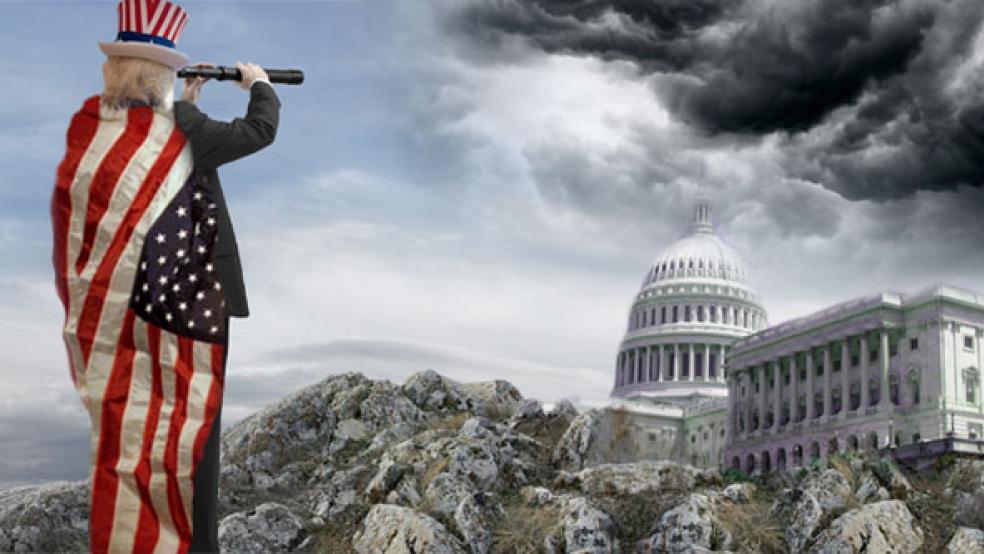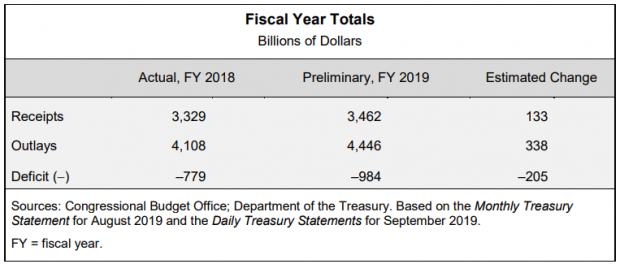The federal budget deficit for fiscal year 2019 grew to $984 billion, or 4.7% of GDP, the highest since 2012, the Congressional Budget Office estimated on Monday.
The total for 2019 is 26% higher than the 2018 deficit and 48% above 2017 levels. CBO noted that the deficit has now grown as a percentage of the economy for four straight years.
Revenues rose: Revenues in fiscal 2019 totaled just under $3.5 billion, up 4% from 2018, CBO said. Individual income and payroll tax receipts rose by 4% while corporate income taxes increased 12%. Full-year revenues exceeded CBO’s August 2019 projection by $11 billion. Revenues would be expected to rise in a period of solid economic growth and low unemployment.
Spending rose more: Outlays in fiscal year 2019 were $4,446 billion, up $338 billion, or 8%, over 2018. (Excluding the effects of a shift in certain payments in 2018, the increase would have been 7%.) Net interest payments on the public debt rose by $52 billion, or 14%, because of higher average interest rates on short-term compared with 2018 and because the federal debt was larger than in the previous year.
The largest spending increase among federal agencies was at the Department of Defense (up $47 billion, or 8%). Outlays for Social Security and Medicare each rose by 6%, while Medicaid spending rose by 5%. In all, the federal government’s outlays exceeded CBO’s August projection by $35 billion.
Actual numbers coming soon: The CBO estimate is based on data from the Treasury Department, which is expected to report the actual annual deficit on Thursday. Treasury’s numbers should be close to CBO’s, though there still may be a chance that the full-year deficit tops $1 trillion.
Why it matters: The full-year numbers are a reminder of the government’s fiscal picture at a time when there’s little appetite among political leaders to bring down rising deficits.
“Federal Reserve Chairman Jerome Powell and other mainstream economists have said the government's fiscal course is not sustainable,” The Washington Examiner says. “Yet there are fewer and fewer calls for legislation in Congress by Democrats or Republicans to attempt to reduce the federal budget deficit. Fiscal hawks have acknowledged that their calls for deficit reduction are going ignored.”
At the libertarian site Reason, Peter Suderman writes that the rising deficit represents a broken promise by President Trump — and one that congressional Republicans who howled about deficits under President Obama have been content to ignore. “Republicans in Congress have reacted with muted concern at best, and more like a collective shrug,” Suderman says. “Trillion-dollar deficits under a Democrat were a national emergency. Trillion-dollar deficits under Trump are no biggie. It's almost like the real problem, for many Republicans, wasn't the deficit.”






